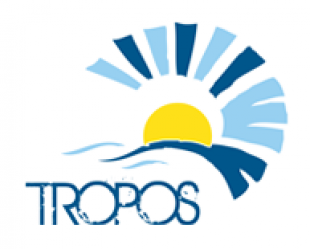Today, terrestrial resources are approaching their physical limits, as the global population already exceeds 7 billion inhabitants, and more than half of them live within 200 km of the coast (generally concentrated in cities).
It is estimated that at world level, the number of citizens living within coastal areas will double by 2025. The same observation is made in Europe: according to the EU Maritime Policy Green Paper (2007), nearly half of the European population lives along or near the coasts, which reduces available lands in coastal regions. Since then, the ocean space has increasingly been considered as a last resort for a number of vital resources for Humanity, for providing energy conversion, minerals, biomass and food. In parallel, the rapid growth of the global economy over the last decades has resulted in a substantial expansion of the transport sector. In addition, with the recent rise of marine renewable resources and aquaculture due to an increasing demand pressure for energy and food worldwide, a far more complex situation has arisen.
As a result, the space and resources available in the oceans have raised growing interest. However, there is currently no coordination of the exploitation of this wide range of resources (energy, aquaculture, transport and leisuresectors), whileit should grow in an orderly way, sustainably planned and managed. There is thereforean urgent need of new approaches and integrated solutions for the exploitation and use of these resources, as this increasingdemand from coastal areas has more particularly led to substantial conflict over land and water usage (e.g. the Palestinian conflict).
Consequently, demand is important in these regions for finding, through an integrated approach regarding the use of the oceans,new ways of food andtransport supplies,and there isalso a strong interest in shifting energy supply to renewable resources in order to better allocate resources. The European Union, aware of this reality, has launched in 2011 “The Ocean of Tomorrow” call for proposals.Through this programme, the EU has made available to the scientific and entrepreneurial community a total funding of €14 M for up to three projects that explore the design of Offshore Multi-use Platforms, in which a mixture of different sectors and specific functions can be performed in a shared location with shared infrastructure (and costs) and could prove to bean important opportunity for improved utilisation of the oceans as well as sustainable economic growth. Therefore, developing a concept of Multi-use Oceanic Platforms has become one of the EU’s most interesting bets to guarantee the use and synergistic exploitation of oceanic resources in a sustainable and eco-friendly manner. It is exactly the aim of the Tropos Project which has been selected alongside with two other projects in the framework of “The Ocean of Tomorrow” call for proposals:
- H2OCEAN – Development of a Wind-Wave Power Open-Sea Platform Equipped for Hydrogen Generation with Support for Multiple Users of Energy – aims at developing an economically and environmentally sustainable multi-use open-sea platform on which wind and wave power will be harvested.Part of the generated energy will be used for multiple applications on-site, including the conversion of energy into hydrogen that can be stored and shipped to shore, and a multi-trophic aquaculture farm. Launched in January 2012 for 2 years, H2OCEAN involves industrial and academic partners from 5 countries.
- MERMAID – Innovative Multi-purpose Off-shore Platforms: Planning, Design and Operation – aims at developing novel innovative design concepts for offshore platforms to address different physical conditions (from deep water to shallow and inner waters) in order to make the best use of the ocean space. Launched in January 2012 for 3 years, MERMAID gathers 28 partners from 13 countries, under the coordination of DanmarksTekniskeUniversitet (Denmark).
Project Website:
Principal Investigator:
Co-Investigators:
Postgraduate Researchers:
Claire Haggett (School of Social and Political Science), Lucy Cradden, David Rudolph (School of Social and Political Science), Laura Finlay and Samantha Quinn



